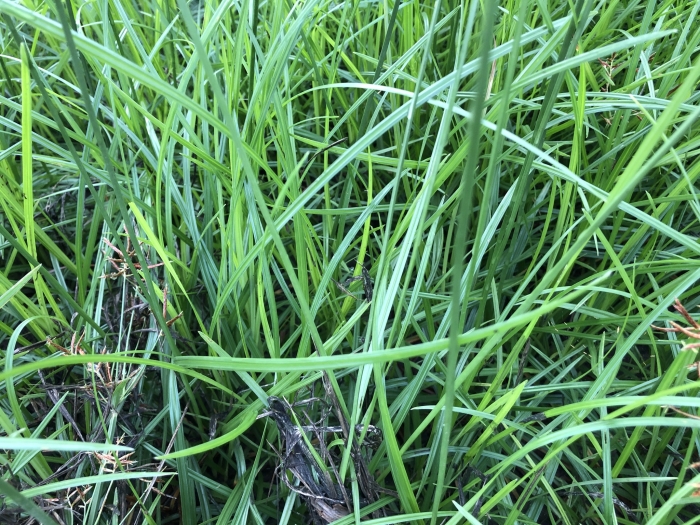Nut Grass
(Cyperus rotundus)
Nut Grass (Cyperus rotundus)
/
/

elawrey
CC BY 4.0
Image By:
elawrey
Recorded By:
Copyright:
CC BY 4.0
Copyright Notice:
Photo by: elawrey | License Type: CC BY 4.0 | License URL: http://creativecommons.org/licenses/by/4.0/ | Rights Holder: elawrey | Publisher: iNaturalist | Date Created: 2019-03-30T21:16:51Z |






















Estimated Native Range
Summary
Cyperus rotundus, commonly known as nut grass or purple nutsedge, is a perennial sedge native to Africa, southern Europe, and southern Asia, often found in wetlands, along riverbanks, and in agricultural fields as a common weed. It typically grows up to 55 inches tall with leaves sprouting from the base in ranks of three, which are glossy and can be mistaken for grass from a distance. The flower stems have a triangular cross-section and bear small, umbrella-like clusters of bisexual flowers that are not particularly showy. The plant is known for its tubers, which resemble nuts and are a survival mechanism, allowing it to thrive in dry conditions.
Cyperus rotundus is valued for its aromatic and medicinal properties, used in traditional medicine to treat various ailments. It is also a staple carbohydrate in some tropical regions. In cultivation, it prefers full sun to part shade and can tolerate a range of soil types, though it thrives in moist, well-drained soils. Due to its aggressive growth and ability to form dense colonies through its tubers, it can be problematic in gardens and agricultural lands, often considered a noxious weed. It is frequently invasive outside of its native range, so caution is advised before planting.CC BY-SA 4.0
Cyperus rotundus is valued for its aromatic and medicinal properties, used in traditional medicine to treat various ailments. It is also a staple carbohydrate in some tropical regions. In cultivation, it prefers full sun to part shade and can tolerate a range of soil types, though it thrives in moist, well-drained soils. Due to its aggressive growth and ability to form dense colonies through its tubers, it can be problematic in gardens and agricultural lands, often considered a noxious weed. It is frequently invasive outside of its native range, so caution is advised before planting.CC BY-SA 4.0
Plant Description
- Plant Type: Grass
- Height: 2-4.5 feet
- Width: 0.2-0.5 feet
- Growth Rate: Rapid
- Flower Color: N/A
- Flowering Season: Spring, Summer, Fall
- Leaf Retention: Deciduous
Growth Requirements
- Sun: Full Sun
- Water: Medium, High
- Drainage: Fast, Slow
Common Uses
Erosion Control, Water Garden
Natural Habitat
Native to wetlands, riverbanks, and agricultural fields in Africa, southern Europe, and southern Asia
Other Names
Common Names: Nutgrass, Coco Grass, Rundes Zypergras, Alho-Bravo, Almendra De Tierra, Balisanga, Purple Nut Sedge, Boto-Botonis
Scientific Names: , Cyperus rotundus, Chlorocyperus rotundus, Cyperus agrestis, Cyperus agrestis, Cyperus badius subsp. inconspicuus, Cyperus badius var. inconspicuus, Cyperus bicolor, Cyperus bulbosostolonifer, Cyperus bulbosostoloniferus
GBIF Accepted Name: